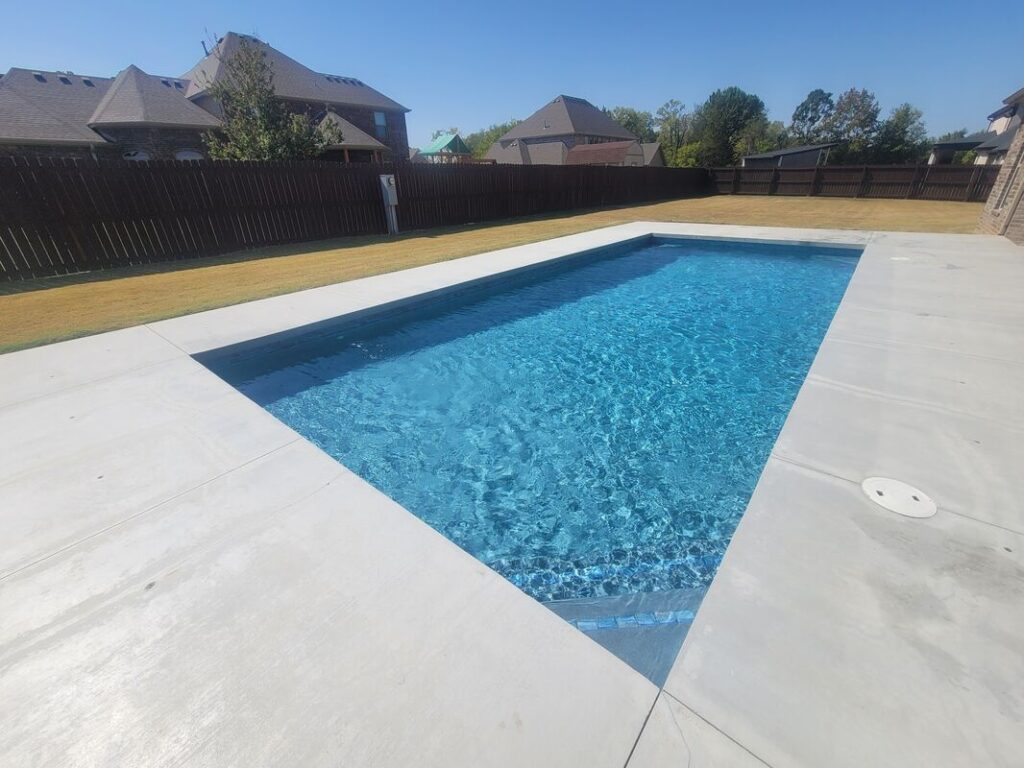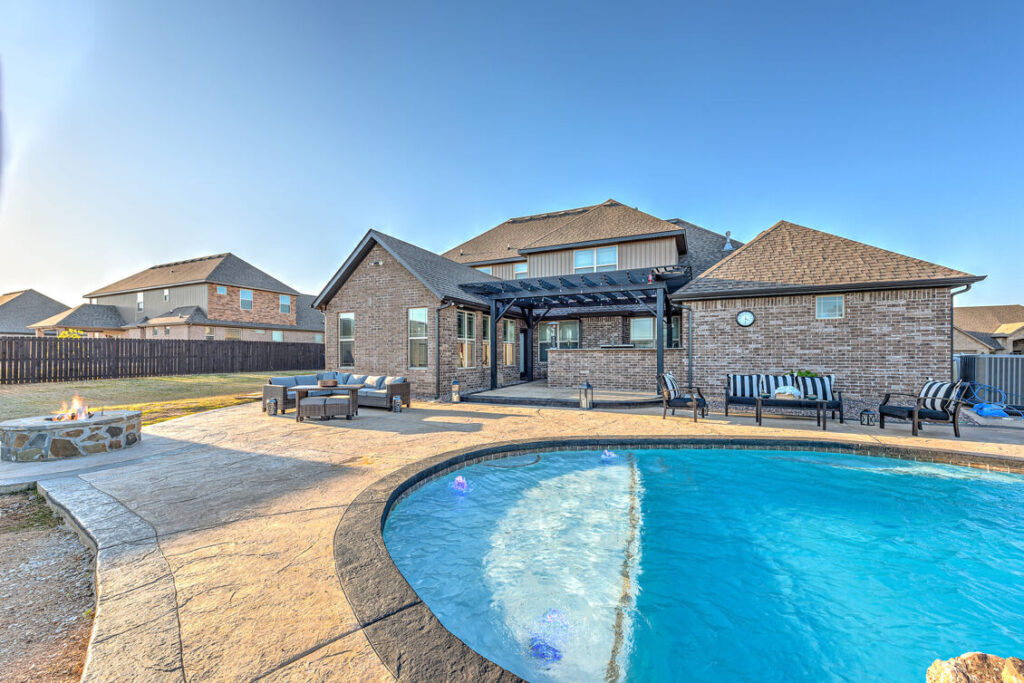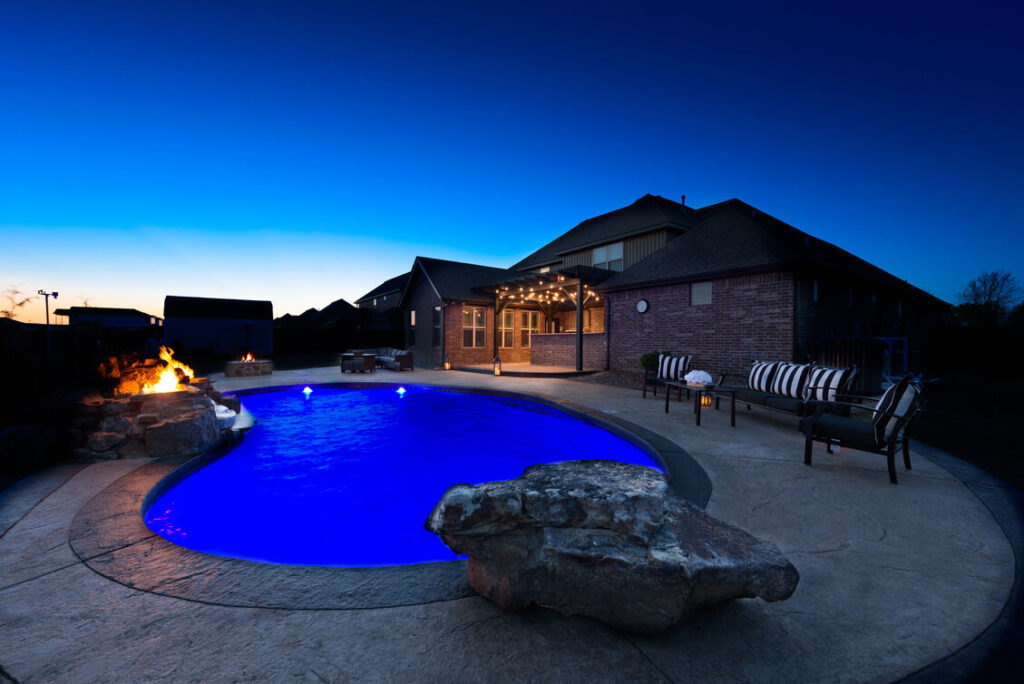Winterizing your pool is one of the most essential tasks for any pool owner. Proper winter care helps protect your pool and equipment from damage caused by freezing temperatures. If you live in Northwest Arkansas, where winters can be unpredictable, knowing how and when to winterize your pool can save you time, money, and hassle when warmer months return.
Understanding why winterizing is important, when to start the process, and the steps to follow will help keep your pool safe and in excellent condition throughout the cold season. With the proper preparation, you can avoid costly repairs and enjoy a smooth pool opening next spring.
Why You Should Winterize Your Pool
Failing to winterize can lead to costly problems. When temperatures drop, water left in pipes, pumps, or filters can freeze and expand, causing cracks or breaks. Pool surfaces may also suffer from algae buildup and debris accumulation during the cold months. According to the Pool & Hot Tub Alliance, the cost of repairing freeze damage can be several hundred dollars, making winterizing a wise investment.
Winterizing also means a cleaner pool comes spring. When you prepare your pool properly, it requires less cleaning and fewer chemicals to get it back to swimming condition. The process protects your equipment, reduces maintenance, and extends the life of your pool.
When to Start Winterizing in Northwest Arkansas
In Northwest Arkansas, the best time to start winterizing your pool is usually late October to early November. This period typically comes after the swimming season ends but before freezing temperatures arrive. The National Oceanic and Atmospheric Administration (NOAA) reports that the average first frost in this region happens around early November.
A good rule of thumb is to begin winterization when daily temperatures consistently fall below 65 degrees Fahrenheit. You can check local weather updates via NOAA’s website to plan your timing. Starting too early can waste chemicals and lower pool usage, while starting too late can risk freeze damage.
Step-by-Step Guide to Winterizing Your Pool

Winterizing a pool involves several essential steps. Follow these to keep your pool safe through the cold months:
- Clean the Pool and Remove Debris
Skim leaves, brush pool walls, and vacuum the floor. Removing debris helps prevent algae growth and staining. - Balance Water Chemistry
Test and adjust your pool water to the recommended levels. Aim for pH between 7.2 and 7.6, alkalinity between 80 and 120 ppm, and calcium hardness between 180 and 220 ppm. Balanced water protects the pool surface and equipment. - Shock Treatment and Algaecide
Add a chlorine shock to kill bacteria and algae, followed by an algaecide to prevent growth over winter. - Lower the Water Level
For in-ground pools, lower the water level about 4 to 6 inches below the skimmer to avoid freeze damage. Above-ground pools have different recommendations—always check your manufacturer’s instructions. - Drain and Store Pool Equipment
Remove pumps, filters, heaters, and other equipment that can freeze, and store them in a dry, safe place. - Blow Out and Plug Pool Plumbing Lines
Use an air compressor or shop vac to clear water from pipes, then plug them to prevent water from entering. - Install and Secure a Pool Cover
Use a sturdy winter pool cover to protect water quality and keep debris out of the pool. Pool pillows can help absorb ice pressure, especially for above-ground pools.
Equipment to Winterize and How
Properly caring for your pool equipment is key:
- Pumps and filters: Drain completely and store indoors if possible.
- Heaters: Turn off, drain, and cover or store inside.
- Automatic cleaners and hoses: Remove and store.
- Skimmers and baskets: Clean and leave in place or remove, depending on the type of your pool.
Failing to protect equipment can cause cracks, rust, or permanent damage from freezing water.
Pool Covers: Types and Benefits
Pool covers are your last line of defense in winterizing. They keep debris out, prevent algae growth, and protect water quality.
- Solid covers: Block all sunlight, preventing algae growth.
- Mesh covers: Allow water to pass through while keeping leaves and debris out.
- Safety covers: Stronger, can hold weight, and prevent accidents.
Using a cover with pool pillows can reduce ice pressure on the pool walls.
Common Mistakes to Avoid When Winterizing Your Pool
- Starting winterization too late or too early
- Not balancing water chemistry properly.
- Leaving water in pipes or equipment, causing freeze damage
- Using a damaged or improperly secured pool cover
- Skipping regular checks during the winter months
Should You Hire a Professional to Winterize Your Pool?

Deciding whether to winterize your pool yourself or hire a professional depends on how comfortable you are with the process and the complexity of your pool system. Doing it yourself can save money, but it requires time, the right tools, and attention to detail.
If you’re unsure or want peace of mind, I recommend hiring a professional like us at BC Pools here in Northwest Arkansas. We understand the local climate and know precisely how to protect your pool from unexpected freezes. We take care of everything, from balancing the water to securing the plumbing and cover, so you don’t have to worry about costly mistakes. Many of our clients prefer to rely on experts, especially when dealing with in-ground pools or more advanced equipment.
How Winterizing Your Pool Saves You Money
Repairing freeze damage can cost hundreds to thousands of dollars, depending on the extent of the damage. Winterizing your pool properly costs only a fraction of that. Protecting equipment, preventing algae growth, and avoiding surface damage reduces repair and maintenance expenses.
Local Weather Considerations for Pool Owners
Northwest Arkansas can experience freezing temperatures from late November through February. Sudden cold snaps with freezing rain or snow increase risks for your pool. Regularly check forecasts through NOAA or the Arkansas Mesonet to time your winterizing and stay prepared.
Frequently Asked Questions (FAQs)
1. When is the best time to start winterizing my pool in Northwest Arkansas?
The ideal time is late October to early November, when daily temperatures drop below 65°F, but before the first frost arrives.
2. Can I winterize my pool myself, or should I hire a professional to do it?
If you have the time, the right tools, and the necessary knowledge, DIY is a viable option. However, professionals can ensure thorough care, especially with complex pool systems.
3. What happens if I don’t winterize my pool properly?
You risk freezing damage to plumbing and equipment, algae growth, debris accumulation, and costly repairs.
4. How often should I check my pool during winter?
Inspect your pool and cover monthly to remove debris and water accumulation and check for damage.
5. Are there eco-friendly products for winterizing my pool?
Yes, many biodegradable algaecides and chlorine alternatives are available. Using them helps reduce environmental impact.
Conclusion
Winterizing your pool in Northwest Arkansas is crucial to protect your investment and ensure a smoother spring opening. Start the process in late October or early November, following the detailed steps to clean, balance the water, drain the equipment, and cover your pool properly. Avoid common mistakes and consider eco-friendly options to keep your pool and the environment safe.
If you’d rather leave it to the experts, we at BC Pools offer professional winterization services for pool owners in Northwest Arkansas. Our experienced team ensures your pool is safely closed for the season, providing you with peace of mind throughout the winter. Contact us today to get started.
You can also browse our other services to see how we can help with your outdoor or home improvement needs.


